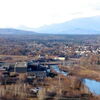Processing Your Payment
Please do not leave this page until complete. This can take a few moments.
- News
-
Editions
-
- Lists
-
Viewpoints
-
Our Events
-
Event Info
- Business Leaders of the Year Reception 2025
- Women's Leadership Forum 2025
- On the Road with Mainebiz in Bethel
- Health Care Forum 2025
- On The Road with Mainebiz in Greenville
- On The Road with Mainebiz in Waterville
- Small Business Forum 2025
- Outstanding Women in Business Reception 2025
- On The Road with Mainebiz in Bath
- 60 Ideas in 60 Minutes Portland 2025
- 40 Under 40 Awards Reception 2025
- On The Road with Mainebiz in Lewiston / Auburn
- 60 Ideas in 60 Minutes Bangor 2025
Award Honorees
- 2025 Business Leaders of the Year
- 2024 Women to Watch Honorees
- 2024 Business Leaders of the Year
- 2023 NextUp: 40 Under 40 Honorees
- 2023 Women to Watch Honorees
- 2023 Business Leaders of the Year
- 2022 NextUp: 40 Under 40 Honorees
- 2022 Women to Watch Honorees
- 2022 Business Leaders of the Year
-
-
Calendar
-
Biz Marketplace
- News
- Editions
- Lists
- Viewpoints
-
Our Events
Event Info
- View all Events
- Business Leaders of the Year Reception 2025
- Women's Leadership Forum 2025
- On the Road with Mainebiz in Bethel
- Health Care Forum 2025
- On The Road with Mainebiz in Greenville
- + More
- On The Road with Mainebiz in Waterville
- Small Business Forum 2025
- Outstanding Women in Business Reception 2025
- On The Road with Mainebiz in Bath
- 60 Ideas in 60 Minutes Portland 2025
- 40 Under 40 Awards Reception 2025
- On The Road with Mainebiz in Lewiston / Auburn
- 60 Ideas in 60 Minutes Bangor 2025
- - Less
Award Honorees
- 2025 Business Leaders of the Year
- 2024 Women to Watch Honorees
- 2024 Business Leaders of the Year
- 2023 NextUp: 40 Under 40 Honorees
- 2023 Women to Watch Honorees
- 2023 Business Leaders of the Year
- + More
- 2022 NextUp: 40 Under 40 Honorees
- 2022 Women to Watch Honorees
- 2022 Business Leaders of the Year
- Nomination Forms
- Calendar
- Biz Marketplace
Lumber prices spike, driving up the cost of construction
 Photo / Heidi Carter, Northern Maine Community College
The first cohort of Mechanized Logging Operations students trained at a site near Medway, as shown in this photo from the Mainebiz archives. The Bangor Daily News reported today that prices for wood to build and renovate houses have as much as doubled over the past six months due to supply chain factors that include dramatic price hikes in the cost of lumber.
Photo / Heidi Carter, Northern Maine Community College
The first cohort of Mechanized Logging Operations students trained at a site near Medway, as shown in this photo from the Mainebiz archives. The Bangor Daily News reported today that prices for wood to build and renovate houses have as much as doubled over the past six months due to supply chain factors that include dramatic price hikes in the cost of lumber.
Prices for wood to build and renovate houses have as much as doubled over the past six months due to supply chain factors that include dramatic price hikes in the cost of lumber.
The Bangor Daily News reported the situation increases costs for consumers but boosts Maine’s softwood sales and signals a turnaround in that segment of the forestry market, according to industry experts.
Factors driving up prices that were reported by BDN include:
- Tight supply as a result of demand for new residential construction and repairs.
- Forest fires last year in western Canada that destroyed prime forests and shuttered mills for up to two months.
- A shortage of railcars and trucks also made it more difficult to transport lumber.
- The trade dispute between the United States and Canada over Canada’s alleged subsidies of softwood.
As a result, Maine mills are boosting production, adding jobs and raising wages, BDN reported.
The tight lumber market comes at a time when Maine’s timber industry is exploring new ways to optimize the resource through sectors like Passive House construction, cross laminated timber production industries and other new uses. In April, Lee Burnett, project manager for Local Wood Works, told Mainebiz that the new industries mesh well with the desire to maintain Maine's forest products industry, and source locally and sustainably.
"If we want to keep Maine's woods as woods, and not have it all developed into spreading subdivisions, we have to make [the timber industry] more competitive, to have someone grow trees and get something back for it," he said.
Secondary wood manufacturing contributes 8,884 jobs and $1.8 billion to Maine's economy, about 20% of the forest products industry’s impact, according to the latest figures posted on the Maine Forest Products Council website.










Comments